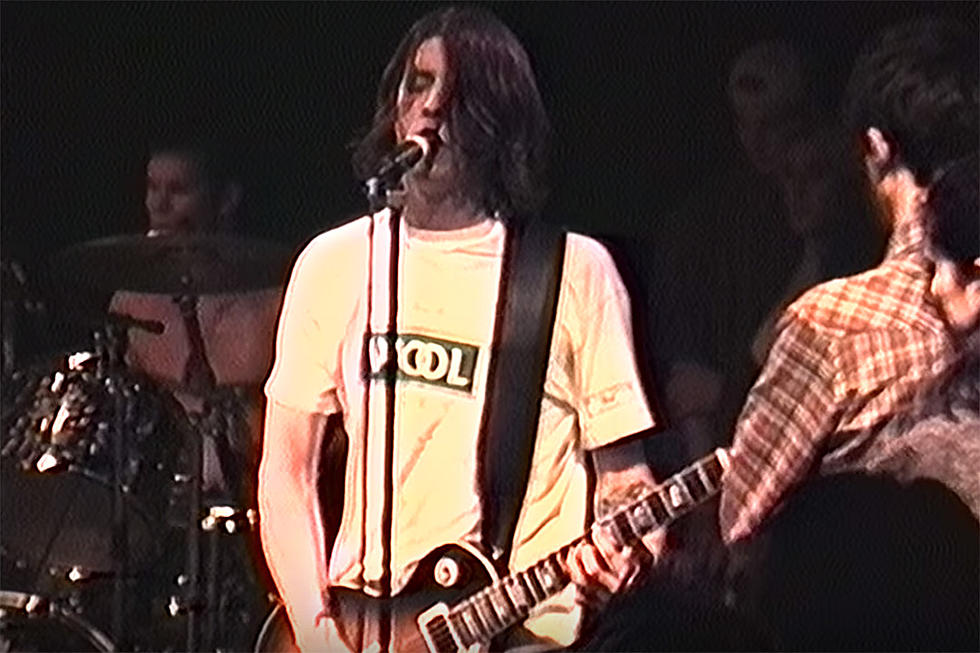
The Knife, ‘Shaking The Habitual’ – Album Review
The notion of anticipated albums is a strange one, as the greater the desire for new music from an artist grows, the more difficult it is for the appetite to be fulfilled. This year, we received a new album from My Bloody Valentine that managed to deliver on a 22-year wait, but this seems like an exception rather than the rule.
A mere seven years have passed since the Knife released their masterpiece 'Silent Shout,' and while the Swedish brother-sister duo has offered solo albums and diversion projects in the meantime, anticipation for 'Shaking the Habitual' goes beyond deep hopes for greatness. There is expectation.
This only intensified when the group's press bio surfaced online and called attention to an artistic worldview that centers on making groundbreaking, revolutionary music. The Knife fear not failure of achieving but rather failure in attempting.
A group that values creativity and conviction as highly as Karin Dreijer Andersson and Olof Dreijer do doesn't misstep. How could they make a mistake when there's no endgame on their part? As presented, 'Shaking the Habitual' has but one overarching tenant: to not give in to routine, to habit, to rules; or as they say, "to live without authority."
The fact is, even a band as resolute as the Knife can't completely "shake the habitual." Rules still govern much of the album, just as rules govern biology or physics. Breathing and blinking can be viewed as habits, and they're necessary. Then again, with 'Shaking the Habitual,' the Knife are likely calling less for change and more for awareness, being conscious of just how much of society and culture we accept without a second thought.
For many, 'Shaking the Habitual' will be a jolt from the daze of typical music listening. At its most difficult -- 'Old Dreams Waiting to Be Realized, which arrives with nearly 20 minutes of ambient droning, bell chimes, free-form electronic tinkering and the occasional scuttling -- the album might lead some to destroy their stereos.
But what does that say about what music and culture have taught us about tension and the lengths we'll go to for the sake of art appreciation? 'Fracking Fluid Injection' is even more unnerving. It's the sound of being sawed in half as slowly as possible. The sensations of fear and anxiety that come from these horror movie-influenced extended transitions may say as much about the audience as they do the artist, but the relief that follows each is considerable. Because they're so grating, these segues amplify the comfort that comes with their successive tracks. The habit of deserving a treat for accomplishment is not easily broken.
It can't be a coincidence that the album's most instantly accessible tracks follow these white-knuckled drifts down slow-moving streams. 'Raging Lung' is almost organic in its percussion and melodically direct. As a result, the song has space to evolve and collapse back down. Closer 'Ready to Lose,' meanwhile, leaves the listener with a declaration of being "ready to lose the privilege." It's unclear whose metamorphosis takes place over the course of the album, theirs or ours -- or both.
And the rest of the collection? Top-notch post-'Silent Shout' Knife that sounds unmistakably like them, even as it represents a natural progression in both experimentation and composition. The songs might seem like better soundtracks for dissecting live humans than for dancing, but 'Networking,' "A Tooth For an Eye,' 'Stay Out Here' and 'Full of Fire' are movers at their core, written for an alternative concept of what fun is, what brings us together and what gives us nightmares.
The Knife are not impervious to ideas falling flat. Cherry On Top' goes beyond the overdramatic and theatrical and just sounds a little goofy, and with 'Wrap Your Arms Around Me,' they craft an epic that borders on universal, as the titular phrase is repeated and mixed with the album's most expansive arrangement. Somehow, after a half-dozen times, though, even the most uncomfortable moments become familiar, showing just how habits work, and how we come to embrace societal notions like wealth, patriarchy or beauty. When we're willing to listen to the sound of what might be death until becoming used to it, it speaks to how easily we get used to ideas every bit as morbid and unnecessary, and as damaging.
More From Diffuser.fm









